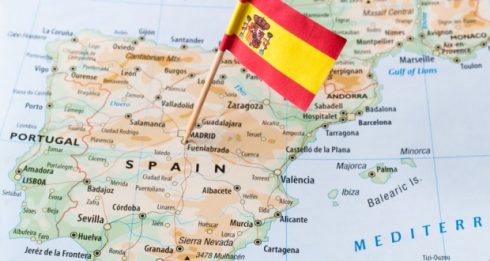 EU withdraws Blue Flag award from two Costa Tropical beaches
EU withdraws Blue Flag award from two Costa Tropical beaches
JUST days after the European Union stripped two Granada beaches of their Blue Flag status, an environmental group has criticised the conditions at eight of the province’s beaches.
Beaches at Albuñol, Polopos, Motril, Salobreña and Almuñecar have the dubious distinction of being awarded a “black flag,” given by Ecologistas en Accion to a beach for its lack of cleanliness, conservation and respect for the environment.
In total, the green group has given 50 beaches in Andalucía a black flag. The worst hit province is Cádiz, with 15 of its beaches singled out, followed by Málaga and Almería (both 11).
Below is a list of the Granada province beaches awarded the black flag.
Playa de El Pozuelo, Albuñol
Residue from the nearby invernaderos (plastic greenhouses) and used chemical packaging was found on this beach. According to the green group, all the beaches in the Albuñol area contained residue from intensive farming from plastic greenhouses.
Playa del Castillo de Baños, Polopos
Intensive construction that allegedly exceeds height restrictions encroaches upon this beach. A nearby camp site makes public access to the playa del Castillo de Baños “impossible.”
Playa del Cañón, Motril
“Urban speculation has destroyed an area of splendid beauty,” claims Ecologistas en Accion.
Playa de las Azucenas, Motril/Playa del Puerto, Motril
Two beaches destroyed by recent construction work at the port of Motril. The group does not advise bathing in either of these beach’s waters as sewage is pumped into the sea here.
Playa de Poniente, Motril
What was once considered the town’s best beach has now been destroyed by “illegal building.” Residue from the nearby Alborán industrial estate is pumped into the sea here.
Playa La Cagadilla, Salobreña
Beach is gradually disappearing due to the non existent flow of sand from the Guadalfeo river.
Playa de Cantarriján, Almuñecar
Vehicles are allowed on this beach – even though it is protected land (the beach forms part of the Paraje Natural de Cerro Gordo natural park). Nearby car park is illegal, according to the green group, and has put in danger protected species of flora such as a rare sea lavender (Limonium malacitanum), a type of box tree only found in pockets in Spain (Buxus balearica) and an endemic species of rosemary (Rosmarinus tomentosus).







why does no-one comment on anything? i mean you could at least just say something stupid like “i was bought a black flag for my birthday” lol that would be pretty funny